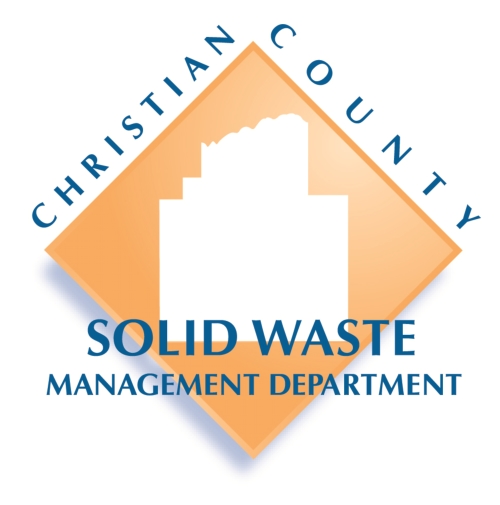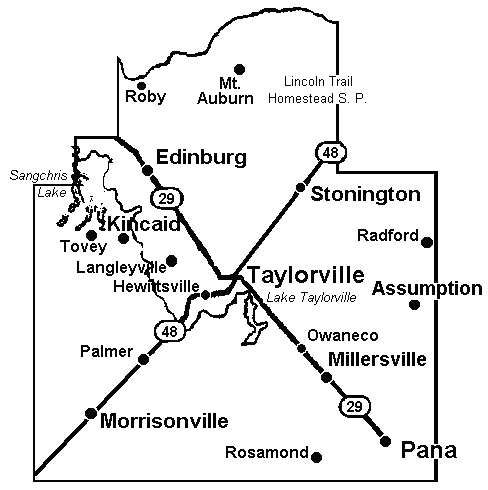
Shawn Hammers
Director
Office: (217) 287-2334

Mailing Address:
101 S. Main St.
Courthouse – 1st Floor
Taylorville, IL 62568
Links & Resources
- Solid Waste Complaint Form
- Recycling, Programs, & Environmental Education
- Open Dumping/Open Burning Ordinance
- Click to view: 2024 20 – Year Solid Waste Management Plan
- R2024 SW 031 – 5 Year Solid Waste Management Plan
- Disposal Resource Guide
- Latex Paint Disposal: How To Store and Dispose of Paint
- Batteries: Types, Info, and Recycling
- Open burning Explained: IL Laws and Permit Procedure
- Open Dumps
- How Does a Landfill Work?
Our Services
Christian County Solid Waste is responsible for:
- Enforcing the Illinois Environmental Protection Act at the local landfill and at open dumping/burning sites.
- Responding to complaints regarding open dumping/burning.
- Funding the electronics recycling program for Christian County residents through BLH Computers.
- Coordinating and funding the collection and hauling of recyclable materials for the schools and county offices within Christian County.
- Hosting Household Hazardous Waste Collection events when state funding is available.
- Acting as a Key Resource for Environmental Information.
- Assisting Businesses with creating or modifying existing recycling problems.
- Providing educational components to increase awareness of waste streams in conjunction with the circular economy. See recycling and environmental education link at the top of the page.
The CCSWMD enforces the applicable Environmental Protection Act statutes, Illinois Pollution Control Board regulations, and landfill permit conditions set by the Illinois EPA.
How Does a Landfill Work?
For the active landfill, these regulations and permit conditions govern hours of operation, types of material accepted, daily operations, cover materials, litter control, leachate collection, gas management and protection of groundwater quality. The landfill is inspected at least twice a month and focus is on:
- Methods of operation
- Number of personnel and type of equipment to process solid waste timely
- Evaluation of daily, intermediate and final cover
- Litter control
- Odor control
- Load checks for unpermitted wastes
- Salvage and/or scavenging activities
- Leachate (liquid contaminated by waste) management
- Gas Management/Energy Generation
- Groundwater monitoring and remediation
Illegal Dump Site Investigations
State statutes and regulations also apply to wastes that are illegally disposed of on public or private property. Illegal dump site investigations are usually initiated within a day or two after being reported.
Copies of all inspection and investigation reports are sent to the Illinois EPA. If violations are found and they are not satisfactorily addressed through voluntary compliance, enforcement actions are pursued through the Christian County States Attorney’s Office and/or the Illinois Attorney General’s Office.
Household Hazardous Waste Collection
When news of state sponsored Household Hazardous Waste Collections are available, information will be posted here.
Together we can keep Christian County a wonderful place to live!


